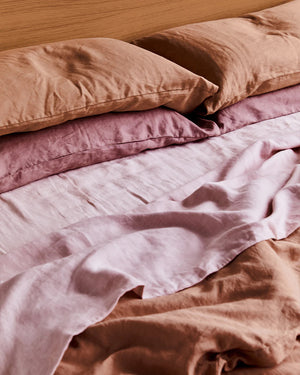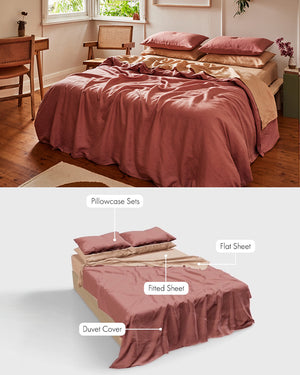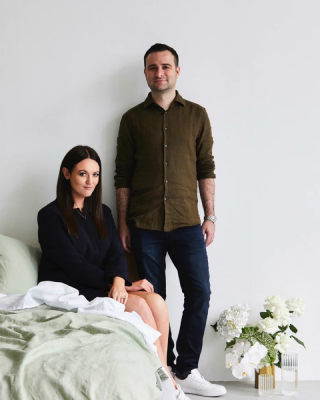7 Of The Biggest Misconceptions About Sleep
Sleep is a hugely important part of our lives, which is why there is so much misinformation and misconceptions when it comes to the subject.
Old wives tales, advice from your mum and your nan, and screeds and screeds of articles in magazines and on the internet have contributed to a culture of confusion around what does and doesn’t work in regards to sleep.
We’re here to debunk some of the biggest sleep myths of all time.
But sleep researchers contend that by doing so people are building up what’s known as “chronic sleep debt”, which will leave your body continually tired over long periods of time and reliant on stimulants to stay awake.
It’s true that one good night of sleep will help get you back on track when it comes to productivity during the day, but according to research it’s better to slowly eradicate your sleep debt through napping and, more broadly, establishing healthy sleep patterns, than relying on the weekend to restore your sleep debt to parity. In short, if you’re feeling overwhelmed, cancel that girls night out and have an early night in instead.
If that’s true they are the exception to the rule because scientists believe that the absolute bare minimum of sleep for the average human being is around seven or eight hours. There is a gene that helps you function on less sleep but it’s only found in around three per cent of the population.
For the remaining 97 per cent? Make sure you get your eight hours. You don’t want to catch yourself tweeting at 3am.
Difficult though it may seem, you’ll be much better off if you force yourself awake when your alarm goes off and get cracking on your morning routine. You may feel tired in the moment but it will be nothing on how tired you will feel come three in the afternoon after a morning of snoozing.
But the amount of tryptophan in turkey is so negligible that you would need to eat a lot of it, a serious, serious amount of it, in order for it to have any kind of sleep-inducing effect. We’re talking between five and eight pounds of turkey here, the size of a newborn baby. That’s a lot of turkey. Try a mindfulness app instead if you’re really trying to sleep.
That’s because a healthy, restful eight hours of sleep is what helps heal and power your body after each workout session. If you keep cutting short your recovery sleep to hit the gym or go for a run you could be damaging your body in the process.
In fact, it’s better all round if you save your workout for the early evening. When done properly it will tire you out for the rest of the night, meaning that you’ll drift off into a dream state without any trouble at all.
Just think about it: even if you were sleeping with your mouth wide open, which not everyone does, spiders would be unlikely to crawl into it. Sleep isn’t exactly a still, silent state. With the movement of your body and breath as well as the sound of sleeping, from snoring to simply inhaling an exhaling, spiders probably aren’t going to go near you. Your mouth is safe.
But that’s the important thing to note: Even if you don’t remember the dream, you’re always dreaming. Throughout the night, in various different guises and forms, you are dreaming. It might be an intense dream, like the most fantastical ones we get during REM sleep, or it might just be a short flight of fancy.
But it’s there and it serves a purpose. Sometime in the future we’ll know exactly what that is. Until then, sweet dreams.
If you are concerned about your health, wellbeing or sleep, your first port of call should be your GP, who will advise a correct treatment plan.
Now that we’re on the topic, here are 10 simple ways to enhance the quality of your sleep – starting from tonight! – plus the 7 surprising things making you tired.
Discover our range of luxurious and accessible 100% French flax linen bedding here.
Old wives tales, advice from your mum and your nan, and screeds and screeds of articles in magazines and on the internet have contributed to a culture of confusion around what does and doesn’t work in regards to sleep.
We’re here to debunk some of the biggest sleep myths of all time.
1. You can catch up on sleep on the weekends
It’s all too common for people to rationalise working late and burning the candle at both ends because they think they can make up for any missed shut eye on Saturday and Sunday.But sleep researchers contend that by doing so people are building up what’s known as “chronic sleep debt”, which will leave your body continually tired over long periods of time and reliant on stimulants to stay awake.
It’s true that one good night of sleep will help get you back on track when it comes to productivity during the day, but according to research it’s better to slowly eradicate your sleep debt through napping and, more broadly, establishing healthy sleep patterns, than relying on the weekend to restore your sleep debt to parity. In short, if you’re feeling overwhelmed, cancel that girls night out and have an early night in instead.
2. You don’t need eight hours of sleep
Margaret Thatcher, Marissa Mayer, former CEO of Yahoo, morning show host Kelly Ripa and, uh, Donald Trump all believe that they can make four or five hours sleep a night work.If that’s true they are the exception to the rule because scientists believe that the absolute bare minimum of sleep for the average human being is around seven or eight hours. There is a gene that helps you function on less sleep but it’s only found in around three per cent of the population.
For the remaining 97 per cent? Make sure you get your eight hours. You don’t want to catch yourself tweeting at 3am.
3. The snooze button is your friend
Again, we hate to be the bearer of bad news, but rather than giving your more time in bed snoozing your alarm could be the reason you feel so tired all the time. When you snooze your alarm your body drifts back into sleep, which means that each time it goes off you are awoken from slumber. Again. All this makes for a disrupted sleep pattern and a low quality rest.Difficult though it may seem, you’ll be much better off if you force yourself awake when your alarm goes off and get cracking on your morning routine. You may feel tired in the moment but it will be nothing on how tired you will feel come three in the afternoon after a morning of snoozing.
4. Turkey helps you sleep
Let’s clear a few things up first: Yes, turkey contains tryptophan, the chemical that powers serotonin and makes you feel drowsy. (Tryptophan is also found in milk, yoghurt, oats and chocolate.)But the amount of tryptophan in turkey is so negligible that you would need to eat a lot of it, a serious, serious amount of it, in order for it to have any kind of sleep-inducing effect. We’re talking between five and eight pounds of turkey here, the size of a newborn baby. That’s a lot of turkey. Try a mindfulness app instead if you’re really trying to sleep.
5. Sacrificing sleep for a workout is good for you
While we would never underestimate the importance of exercise it’s equally as important to note that sacrificing sleep to squeeze an hour in the gym into your day is going to do more harm than good.That’s because a healthy, restful eight hours of sleep is what helps heal and power your body after each workout session. If you keep cutting short your recovery sleep to hit the gym or go for a run you could be damaging your body in the process.
In fact, it’s better all round if you save your workout for the early evening. When done properly it will tire you out for the rest of the night, meaning that you’ll drift off into a dream state without any trouble at all.
6. You swallow spiders in your sleep every year
We’re here to officially bust this myth. It’s truly terrifying, yes, but it’s a myth all the same.Just think about it: even if you were sleeping with your mouth wide open, which not everyone does, spiders would be unlikely to crawl into it. Sleep isn’t exactly a still, silent state. With the movement of your body and breath as well as the sound of sleeping, from snoring to simply inhaling an exhaling, spiders probably aren’t going to go near you. Your mouth is safe.
7. You don’t dream every night
Dreaming remains one of the least understood and explored areas of the human body. We don’t know, for example, why we dream and just how important it is to our mental and physical state. We don’t know why some people know that they’re dreaming and others don’t. And we don’t know why some people remember their dreams and others don’t.But that’s the important thing to note: Even if you don’t remember the dream, you’re always dreaming. Throughout the night, in various different guises and forms, you are dreaming. It might be an intense dream, like the most fantastical ones we get during REM sleep, or it might just be a short flight of fancy.
But it’s there and it serves a purpose. Sometime in the future we’ll know exactly what that is. Until then, sweet dreams.
If you are concerned about your health, wellbeing or sleep, your first port of call should be your GP, who will advise a correct treatment plan.
Now that we’re on the topic, here are 10 simple ways to enhance the quality of your sleep – starting from tonight! – plus the 7 surprising things making you tired.
Discover our range of luxurious and accessible 100% French flax linen bedding here.

















